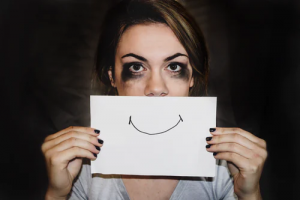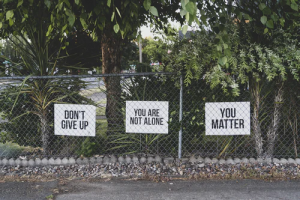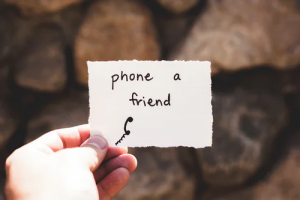
If you’re a college student then you’ve probably experienced extreme stress from school at one time or another. Perhaps you’ve had a mental breakdown before (maybe dozens of them) or you’re on the brink of having one right now. Between pulling all-nighters, failing your first quiz, juggling social life and academics, eating cereal for breakfast, lunch, and dinner, it’s no surprise that college students are struggling. College is stressful, in fact, college is the most stressful time in many people’s entire lives! Unfortunately, with this great stress, sleep deprivation, academic obstacles, comes even greater issues. Mental health issues are sky-rocketing in college students and they don’t seem to be declining anytime soon. This is why it is absolutely essential that all colleges and universities provide their students with the appropriate resources.

1. School Funded Therapists
Almost every college in the United States has a school funded therapist(s) who can be found at a school’s counseling center. These are licensed professionals who students can confide in to help with school or non-school related issues. Many of these counseling centers are open 24 hours a day to provide students with around the clock assistance. Also many of these therapists allow students to attend phone call sessions rather than in person meetings, if the student would feel more comfortable and have a better sense of privacy.
2. Deans
Many students have the misconception that college deans are only used for academic purposes, but that is far from the truth. Deans want to ensure that their students are having the best possible college experience, which is why they are available to talk about their students’ overall well-being. Students should feel comfortable speaking to their deans about mental health leaves of absence, sexual harassment, family troubles, and anything that is causing a student distress.
3. RAs and CLs
For students starting college soon, in most colleges and universities, underclassmen dorms have a couple upperclassmen living in each of the dorms. These upperclassmen are distributed in underclassmen dorms in order to serve as RAs and/or CLs, which are resources for the younger students to have in close living proximity. Younger students often feel less vulnerable speaking with another student than a licensed professional because students are more relatable and less structured in the way they give advice.
4. Online Resources
The current world is saturated in technology, so college students should be taking full advantage of this. There are all kinds of online mental health resources for a wide array of issues such as depression, addiction, anxiety, and eating disorders. Here are a few great online resources that are more than happy to help college students feel better: Health Unlocked, Turn2Me, Daily Strength, Mental Health Forum, Mental Health America and MentalHealth.gov.
5. Friends and Family

If you’re lucky enough to have friends and family then lean on them. Not everyone comes from loving and supportive families, while others are not fortunate enough to be surrounded by solid friend groups. However, if you are auspicious enough to have people close to you who love you and want to support you, then allow them to help you. This can be something as simple as allowing them to listen to your negative thoughts or letting them find resources for you to get better quickly.
College is challenging for most people, even those who are fortunate enough to not be stricken by a mental illness. So it’s understandable how much harder college can seem for those battling mental health issues. There are an abundance of mental health resources in the world and colleges need to provide them, while students need to seek them. There are plenty of resources out there for students to feel better about themselves and the world around them.
Written by: Olivia Fitzgerald
